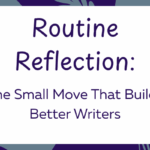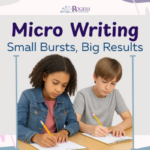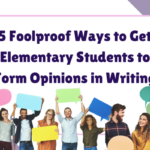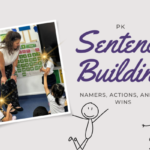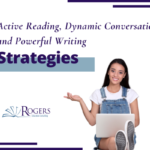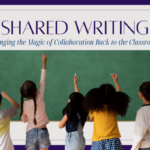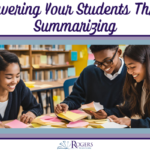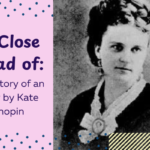If there’s one thing I’ve learned from coaching teachers across the country, it’s this: sometimes the smallest shifts spark the biggest growth. In his article, Changing How Writing Is Taught, Steve Graham offers a powerful overview of why writing instruction often falls short. He highlights a key problem: while many teachers know what good writing […]
Blog
Micro Writing: Small Bursts, Big Results
📌 Why A common writing frustration—“Getting students to add details is like pulling teeth!” If you’ve ever heard this in your classroom, you know how difficult it can be to help students move beyond basic writing to more descriptive, refined work. ✍️ Why It’s Important Micro writing isn’t just about writing quickly, it’s about working […]
5 Foolproof Ways to Get Elementary Students to Form Opinions in Writing
Opinion writing can be a struggle when students don’t even know what they think. Before they can craft a strong argument, they need to form one. Here are five engaging strategies to help students develop opinions—and back them up with solid reasoning. 1. Would You Rather…? Debate in Motion Pose a fun, thought-provoking question: Would […]
Pre-K Sentence Builders: Namers, Actions, and Big Wins!
Building Sentences in Pre-K? Absolutely! Think Pre-K students are too young to learn about parts of speech? Spoiler alert: they’re not! Last month, I worked with a Pre-K class transitioning from Writers’ Workshop to a more structured writing approach. The goal? To introduce the idea that every sentence needs a namer (subject) and an action […]
Active Reading, Dynamic Conversations, and Powerful Writing Strategies
Middle schoolers don’t often come to class eager to discuss global warming, but when you hand them a vivid image and ask them, “What’s going on in this picture?”—well, you just might surprise yourself. Recently, I had the chance to work with an incredible group of middle school students, most of whom are second-language learners. […]
Shared Writing: Bringing the Magic of Collaboration Back to the Classroom
Shared writing is a fantastic, collaborative approach that brings students into the writing process. Imagine sharing the cognitive load (and sometimes the literal pen) with your class – it’s a powerful way to model writing skills, strategies, and even the mechanics of encoding. It’s one of those teaching techniques that packs a serious punch. In […]
Empowering Your Students Through Summarizing: A Lesson with “Thank You, Ma’am”
Hello, dedicated educators! Today, we’ll walk through a practical lesson on summarizing using Langston Hughes’ classic short story, “Thank You, Ma’am.” Summarizing is an essential skill that helps students distill a text to its core components, promoting comprehension and retention. Why Summarizing Matters Summarizing requires readers to engage deeply with the text, evaluate information, and […]
Lesson Plan: A Close Read of The Story of an Hour by Kate Chopin
A lesson plan outline to teach close reading of The Story of an Hour by Kate Chopin.
